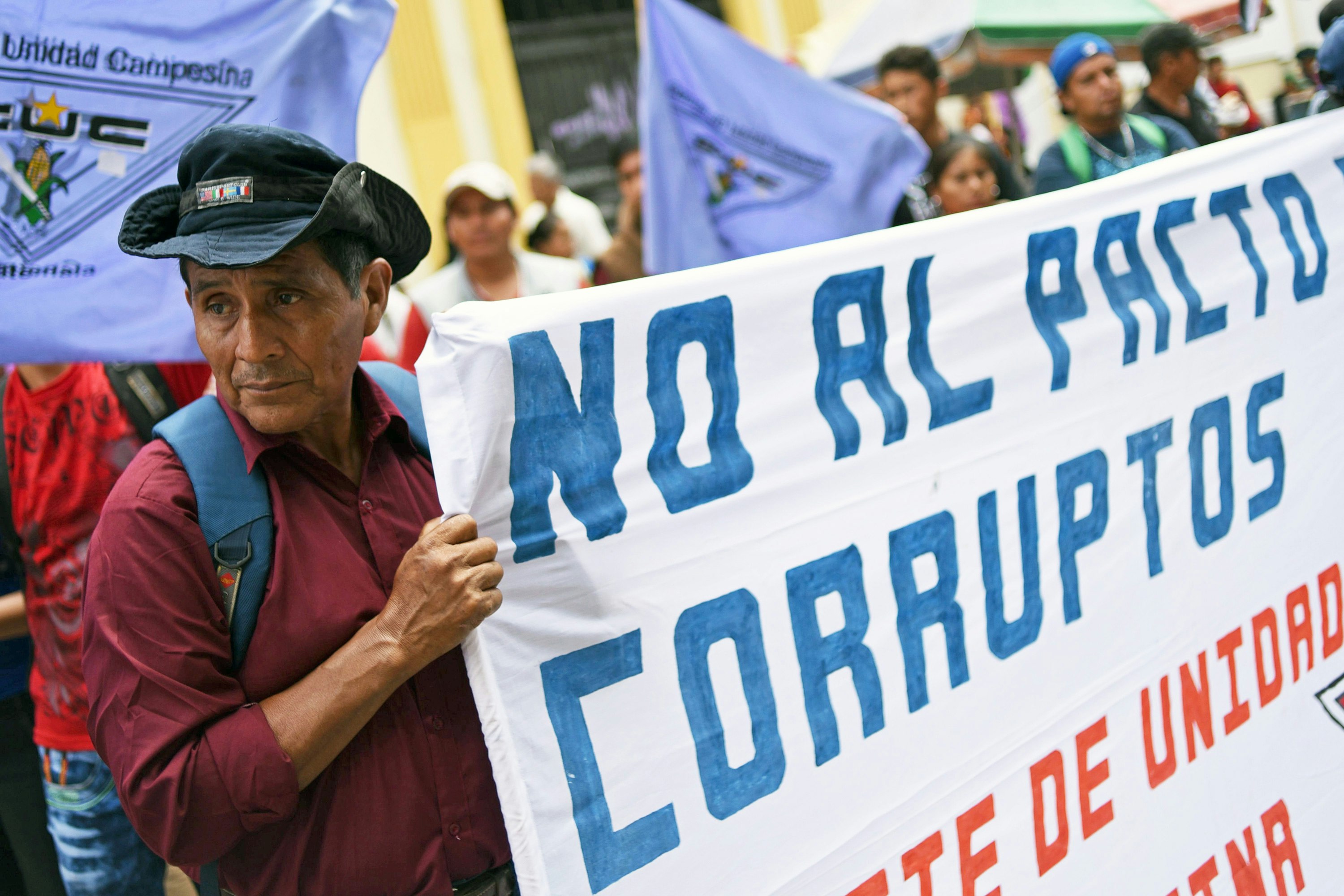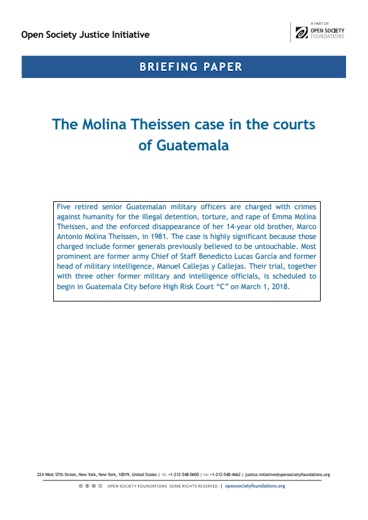Independent Report Gives High Marks to Prosecution Reform in Guatemala
Guatemala’s prosecutorial system has undergone a profound and positive shift in direction since December 2010 under the leadership of Attorney General Claudia Paz y Paz, according to a new independent assessment issued today.
The report, conducted by the Centro de Estudios de Justicia de las Americas, (CEJA), with the support of the Open Society Justice Initiative, credits Paz y Paz’s leadership of Guatemala’s Public Ministry with “significantly improving criminal prosecutions, reducing impunity for the most serious crimes, increasing the level of transparency and accountability, and strengthening the Public Ministry’s institutional functioning.”
“All these steps have contributed to better institutional functioning, and to increased confidence in the justice system,” it states.
Paz y Paz is now seeking selection for a second four-year term of office by President Otto Perez Molina.
A summary of the report, released in Guatemala City today, noted that from 2008 to 2013:
- The number of cases lodged with Public Ministry prosecutors increased by more than a third, from 216,111 to more than 300,000.
- The number of cases resolved without going to court increased almost four times, from 5,800 to 27,950.
- The number of convictions secured almost doubled, from 3,280 to 7,122.
The report noted that the reforms undertaken at the Public Ministry are in line with similar steps taken in other jurisdictions across Latin America. It notes that the outcomes so far demonstrate that the Public Ministry’s departments are “functioning correctly, and in addition, producing highly positive data.”
The report also highlighted significant progress in the battle against gang-related violence, including a series of successes in prosecuting gang violence, such as the extradition from the United States and successful prosecution of notable gang leaders. It also noted the successful preparation of cases against alleged perpetrators of mass atrocities during Guatemala's 36-year civil conflict.
The report also noted steps to strengthen protection for victims of crime, with the creation in 2013 of victims’ support offices across the country, as well as increased access to the justice system for ethnic minorities and others, with the number of translators working with prosecutors more than doubled to 54 in 2013 from 20 in 2011.
The assessment of the Public Ministry’s record over the past 3 years was carried out by German Garavano, a lawyer whose career included 20-years as a prosecutor with the Buenos Aires Public Ministry in Argentina. He said:
“The Guatemalan Public Ministry has taken the right steps on the road to greater institutional effectiveness, with measurable progress in the fight against impunity. It has seen measurable advances in the area of organized crime, with reductions in kidnappings and murders. Its approach to the treatment of crimes against women, and to the use of dispute resolution for less serious cases, represents an appropriate response to growing demands.”
The full report will be released in May.
The report’s executive summary has been published as Guatemala prepares to nominate a new Attorney General, in a fraught process that reflects the deep political divisions within the country over the administration of justice. Paz y Paz is due to step down next month, following a Supreme Court ruling in February that prevented her from serving a full four year term.
The special commission handling the selection process has so far interviewed 26 candidates, including Paz y Paz. It is due to present a short-list of six names to the president later this week.
James A. Goldston, executive director of the Justice Initiative, said: “This independent assessment of the performance of the Public Ministry by a distinguished Argentinian prosecutor is perfectly clear; under Claudia Paz y Paz the Guatemalan court system displayed courage and independence, and was more effective in fighting corruption and gang violence, which have traditionally plagued Guatemalan society.”
Related Work
International Prosecutors Fought Corruption in Guatemala. Now They’ve Been Ordered Out
The United States is acquiescing in the destruction of one of the few institutions that has shown success in targeting the main causes of Guatemala’s dysfunction.

Guatemala Must Continue Its Commitment to Combat Corruption and Impunity
Guatemalan President Jimmy Morales has violated his country’s agreement with the United Nations by preventing the head of the International Commission against Impunity in Guatemala (CICIG) from reentering the country.
The Molina Theissen Trial in the Courts of Guatemala
Background information on the trial of former senior Guatemalan military officers over crimes against humanity allegedly committed against members of the Molina Theissen family in 1981.
